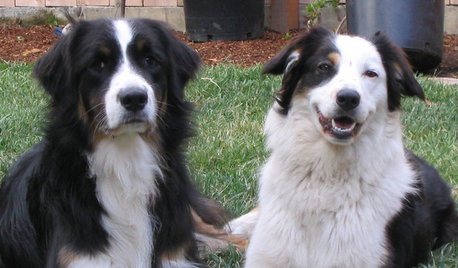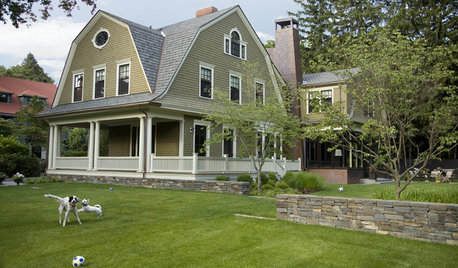Cold Comfort Farm Stella Gibbons
jankin
18 years ago
Related Stories

BEFORE AND AFTERSSee 6 Yards Transformed by Losing Their Lawns
Wondering whether a turf lawn is the best use of your outdoor space? These homeowners did, and they found creative alternatives
Full Story
PETSHouzz Call: Send in the Dogs
Have the greatest dog in the world? Share your best design photo featuring the dog you live or work with
Full Story
MOST POPULARIs Open-Plan Living a Fad, or Here to Stay?
Architects, designers and Houzzers around the world have their say on this trend and predict how our homes might evolve
Full Story
PETSDealing With Pet Messes: An Animal Lover's Story
Cat and dog hair, tracked-in mud, scratched floors ... see how one pet guardian learned to cope and to focus on the love
Full Story
PETSSo You're Thinking About Getting a Dog
Prepare yourself for the realities of training, cost and the impact that lovable pooch might have on your house
Full Story
PETSHouzz Call: Show Us Your Pet Projects!
Bubble windows, fountains, doghouses, showers — what outdoor treats have you put together for your furry friends?
Full Story
LANDSCAPE DESIGNStrike a Balance: Stuff vs. Space in the Garden
Zoom out to the big design picture before focusing on the little details, to create a garden with all the elements in balance
Full Story
GARDENING GUIDES15 Ideas to Try in Your Garden This Year
These gardening stories were tops among Houzz readers. Which ideas might you try this year?
Full Story


jankinOriginal Author
brendainva
Related Discussions
How Many of These Have You Read
Q
CXLI: Happy Holidays!!!!!
Q
Game for September CXLVX
Q
Game CLII November
Q
carolyn_ky
brendainva
jankinOriginal Author
captainbackfire
jankinOriginal Author
carolyn_ky
J C
annpan
hemlady
J C
netla
annpan
carolyn_ky
netla
annpan
jankinOriginal Author
woodnymph2_gw
jankinOriginal Author
ccrdmrbks
smallcoffee
sheriz6
veer
friedag
smallcoffee
woodnymph2_gw
ccrdmrbks
friedag
katefw
annpan
brendainva
cessira
sheriz6
friedag
cessira
brendainva
friedag
annpan
cessira
friedag
veer
friedag
friedag
friedag
veer
lemonhead101
katefw
murraymint11
georgia_peach